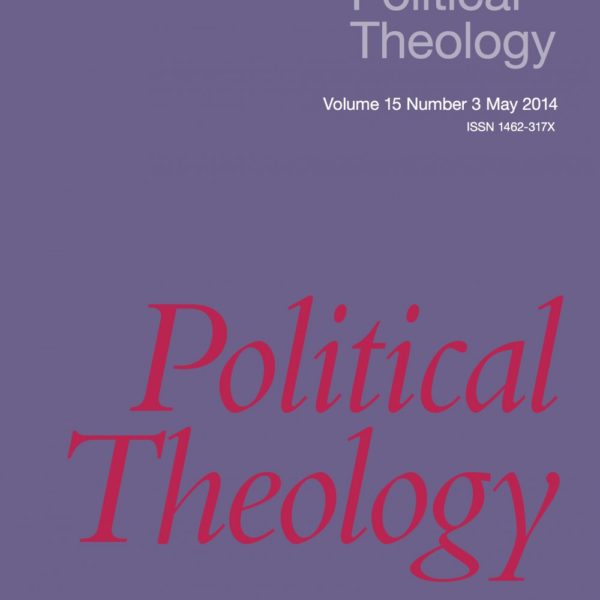
If God invites dialogue and intervention and is moved by human persons, God is thus open to changing God’s mind. This picture of God has implications for human interactions. In cultural and political movements, people often make up their mind and are unpersuaded by what other people say or do. When these others are suffering others, being unpersuaded is a mark of tyranny. When evidence of malevolent intention is presented and the evidence is brushed aside in favour of aligning with larger—national or otherwise—interests, impassibility is a crime.

The Prophet Jeremiah announced a gift that refers not only to the repopulating of the land after the exile, but also speaks about the renewal of hearts, a covenantal gift rooted in God that would renew the people of God at all levels of society.

The editors of Political Theology are pleased to announce that the latest issue is now available on the web. Issue 15.3 (May 2014) features a discussion of William F. May’s Testing the National Covenant: Fears and Appetites in American Politics. Below is a full listing of the issue contents as well as a selection from Andrew Murphy’s editorial, “Complicating Covenantalism.”




